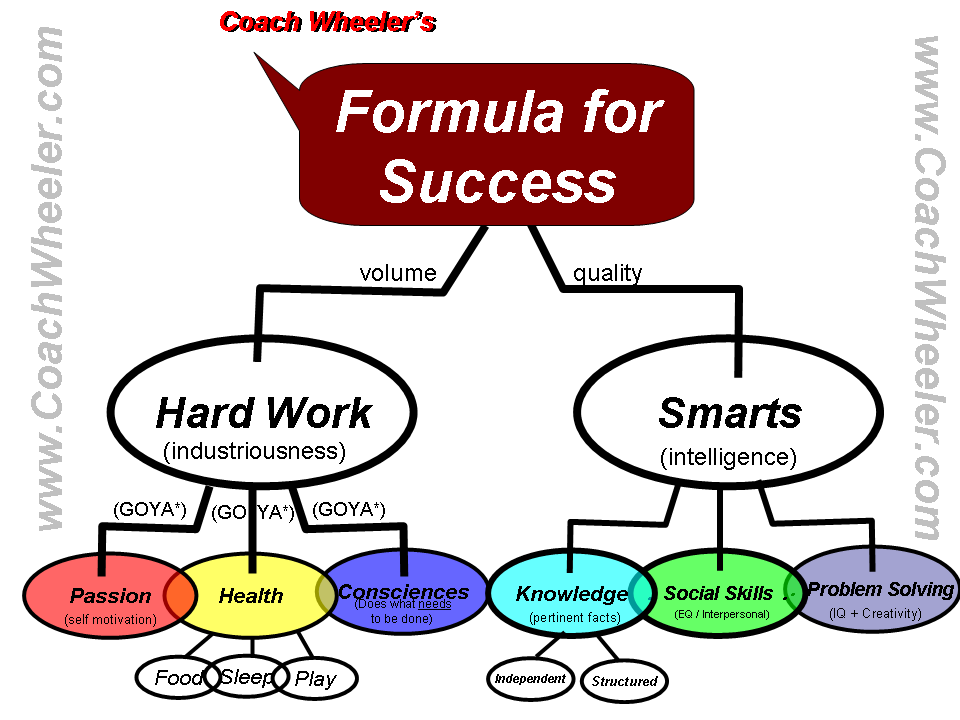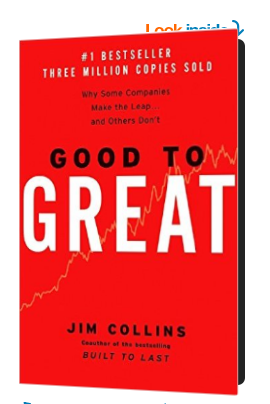
Below, you will find a selection of books related to the deepest level success inputs in Coach Wheeler’s “Roots of Success” diagram. These books can help illuminate the concepts that underlie each facet of success as described in the framework.
Note: If you purchase through the links in this post, you will be helping Coach Wheeler pay for this website and keep the content coming your way!
Success Inputs for Passion:
Vision and Mission
Vision:
“Start With Why” by Simon Sinek
Sinek explores how leaders and organizations can inspire others by identifying and communicating their “Why” or core purpose. He emphasizes that those who lead with ‘why’ are able to inspire and engage others more effectively.
“The Art of Possibility” by Rosamund Stone Zander and Benjamin Zander
This book is a guide to opening up one’s mind to the possibilities that exist within every situation. By aligning your vision with what’s possible, you can transform not only your personal life but also your professional endeavors.
“Dare to Lead” by Brené Brown
Summary: Brown provides insight into how to embrace vulnerability and uncertainty to create a more courageous and visionary leadership style. Her research-backed approach helps readers cultivate an authentic and inspiring vision.
Mission:
“The 4 Disciplines of Execution” by Chris McChesney, Sean Covey, and Jim Huling
This book focuses on how to execute strategy and mission with excellence. The authors present four essential disciplines that empower organizations to achieve their wildly important goals.

“Good to Great” by Jim Collins
Collins examines how companies transition from being good to great, outlining the systematic process and the disciplined focus on mission that differentiates great companies. Two thumbs up from Coach Wheeler!
“Mastering the Rockefeller Habits” by Verne Harnish
Harnish presents a guide to business strategy focusing on clear planning and disciplined execution. The book offers tools and strategies for companies to define their mission and execute it successfully.
Success Inputs for Health:
Food, Sleep/Recovery, and Play
Food:
“The Omnivore’s Dilemma” by Michael Pollan
Pollan takes readers on an exploration of food choices, looking at the ethical and environmental implications of what we eat. He emphasizes the importance of conscious eating for personal and planetary health.
“Eat to Live” by Joel Fuhrman
Dr. Fuhrman provides a comprehensive guide on nutritional science, offering a diet that focuses on nutrient-dense foods to enhance overall wellness.
“In Defense of Food” by Michael Pollan
Pollan provides an easy-to-follow guide to eating healthily, boiling it down to the mantra, “Eat food, not too much, mostly plants.” His insights encourage mindful eating based on real, whole foods.
Sleep/Recovery:
“Why We Sleep” by Matthew Walker
A comprehensive exploration of the vital importance of sleep, this book delves into the science of sleep and its profound impact on our health, brain function, and quality of life.
“The Sleep Revolution” by Arianna Huffington
Huffington addresses the sleep deprivation crisis, arguing for a cultural shift that recognizes the importance of rest and recovery in our fast-paced world.
“Sleep Smarter” by Shawn Stevenson
Stevenson offers actionable insights and tips to optimize sleep quality, emphasizing how proper sleep supports overall wellness.
Play:
“Play” by Stuart Brown
Brown argues that play is not just essential for children but for adults too. He explores the science of play and how it improves creativity, innovation, and overall happiness.
“The Playful Brain” by Sergio Pellis and Vivien Pellis
This book delves into the neurobiology of play, showing how it shapes the brain and development, offering insights into why play is crucial for social and cognitive growth.
“Free to Learn” by Peter Gray
Gray explores how play and curiosity drive learning, advocating for an educational approach that incorporates play and self-directed learning.
Success Inputs for Conscienceness:
Accountability and Responsibility (A&R)
Accountability:
“The Oz Principle: Getting Results Through Individual and Organizational Accountability” by Roger Connors, Tom Smith, and Craig Hickman
This book focuses on how personal and organizational accountability leads to success and fulfillment. It offers practical strategies to take ownership and achieve better results.
“The Accountability Revolution” by Mark Samuel
Samuel presents a fresh perspective on accountability, emphasizing its role as a positive and empowering force within organizations.
“Ownership Thinking” by Brad Hams
Hams introduces a model of employee engagement based on accountability and ownership thinking, showing how to create a culture where employees think and act like owners.
Responsibility:
“Extreme Ownership” by Jocko Willink and Leif Babin
Two Navy SEALs share their leadership lessons on taking full responsibility and leading effectively under pressure.
“The Responsibility Virus” by Roger L. Martin
Martin explores the tendency to either take on too much responsibility or shirk it entirely. He provides a guide to balancing responsibility and empowering others.
“The Power of Responsibility” by Joelle Casteix
This motivational book offers a step-by-step guide to embracing personal responsibility, focusing on empowerment, healing, and personal growth.
Success Inputs for Knowledge:
Independent, Structured, General, Specialized and Memory/Recall
Independent Knowledge:
“The 4-Hour Chef” by Tim Ferriss
Ferriss explores how to learn anything rapidly and effectively. He offers a method for independent knowledge acquisition that can be applied to various subjects.
“Ultralearning” by Scott Young
Young provides a guide to mastering hard skills and acquiring knowledge independently. His methods are geared towards self-driven learners who want to achieve more in less time.
Structured Knowledge:
“Make It Stick” by Peter C. Brown, Henry L. Roediger III, and Mark A. McDaniel
This book explores the science of learning and provides insights into how to structure knowledge acquisition for long-term retention.
“How to Create a Mind” by Ray Kurzweil
Kurzweil investigates how the brain works, focusing on pattern recognition and the hierarchical structure of knowledge.
“Building a Better Teacher” by Elizabeth Green
Green offers a look at the art and science of teaching, exploring how effective education is structured and what it takes to foster deep understanding.
General Knowledge:
“A Short History of Nearly Everything” by Bill Bryson
Bryson takes readers on a tour of science and history, providing a comprehensive overview of general knowledge across various domains.
“The New Dictionary of Cultural Literacy” by E.D. Hirsch, Joseph F. Kett, and James Trefil
This reference book offers a guide to essential concepts and terms that everyone should know, fostering general cultural literacy.
“Sapiens: A Brief History of Humankind” by Yuval Noah Harari
Harari explores the history and impact of Homo sapiens, providing a broad understanding of human history, society, and culture.
Specialized Knowledge:
“Outliers” by Malcolm Gladwell
Gladwell investigates why some people succeed, focusing on specialized knowledge, practice, and the various factors that contribute to high levels of success.
“Deep Work” by Cal Newport
Newport explores how deep, focused work leads to mastery and specialization. He offers practical advice for those seeking to hone specialized skills and knowledge.
“The Talent Code” by Daniel Coyle
Coyle explores how talent is developed, focusing on deep practice and specialized training. He provides insights into how anyone can develop specialized skills and expertise.
Memory/Recall:
“Moonwalking with Einstein” by Joshua Foer
Foer explores the art of memorizing and the science of memory, offering practical techniques to enhance memory and recall.
“The Memory Book” by Harry Lorayne and Jerry Lucas
This classic guide offers a range of techniques to improve memory, from simple tricks to advanced systems, suitable for anyone looking to enhance recall.
“Make Your Brain Smarter” by Sandra Bond Chapman, Ph.D.
Chapman provides strategies to increase brain performance and memory recall, focusing on scientifically proven methods to enhance cognitive function.
Inputs for Social Skills:
EQ Intelligence and Interpersonal skills
Intelligence of Emotions (EQ):
“Emotional Intelligence 2.0” by Travis Bradberry and Jean Greaves
Bradberry and Greaves offer a step-by-step program to increase emotional intelligence, focusing on four core EQ skills that drive success.
“Primal Leadership” by Daniel Goleman, Richard Boyatzis, and Annie McKee
This book focuses on leadership and the role of emotional intelligence in building strong relationships, teams, and organizations.
“Daring Greatly” by Brené Brown
Brown explores the power of vulnerability and empathy, emphasizing how emotional intelligence and connection can lead to a more fulfilled and courageous life.
Interpersonal Skills:
“How to Win Friends and Influence People” by Dale Carnegie
Carnegie’s timeless classic provides practical advice on effective communication, understanding others, and building lasting relationships.
“Influence: The Psychology of Persuasion” by Robert B. Cialdini
Cialdini explores the principles of persuasion and influence, offering insights into how to communicate and connect with others more effectively.
“Crucial Conversations” by Kerry Patterson, Joseph Grenny, Ron McMillan, and Al Switzler
This book offers techniques for handling difficult and crucial conversations, focusing on communication skills that foster understanding and collaboration.
Inputs for Problem Solving:
IQ (basic intelligence) and Creativity
IQ (Basic Intelligence):
“Thinking, Fast and Slow” by Daniel Kahneman
Kahneman, a Nobel laureate, explores the dual-process model of the brain, revealing how our thinking is divided into intuitive and logical processes.
“The Mismeasure of Man” by Stephen Jay Gould
Gould challenges traditional measures of intelligence, providing a critical examination of IQ testing and the nature of intelligence.
“The Intelligence Trap” by David Robson
Robson explores how intelligent people make irrational decisions and offers insights into how to think more critically and effectively.
Creativity:
“The Creative’s Curse” by Todd Brison
Brison provides a guide for creative minds, offering insights into how to nurture creativity and overcome the challenges that creative individuals often face.
“Big Magic: Creative Living Beyond Fear” by Elizabeth Gilbert
Gilbert offers a warm and wise perspective on creativity, encouraging readers to embrace inspiration and live a creative life without fear.
“The War of Art” by Steven Pressfield
Pressfield explores the internal barriers to creativity and offers motivation and guidance for overcoming resistance and unleashing creative potential.
Wrap UP…
These books cover a wide array of topics or “success inputs” related to the deepest-level inputs of the “Roots of Success” diagram created by . By delving into these texts, readers can gain a deeper understanding of the core concepts that shape success and personal development. Whether focusing on passion, health, conscience, intelligence, or social skills, these readings offer valuable insights and practical applications to foster growth and achievement.
Remember, success is not merely a destination but a journey shaped by continuous learning, self-reflection, and the relentless pursuit of excellence. By embracing these principles and integrating the wisdom contained within these books, you are paving the way toward a more fulfilling and successful life.
Now, let’s get off our metaphorical backsides and dive into these enriching resources! How will you take the next step in your personal or professional development?
